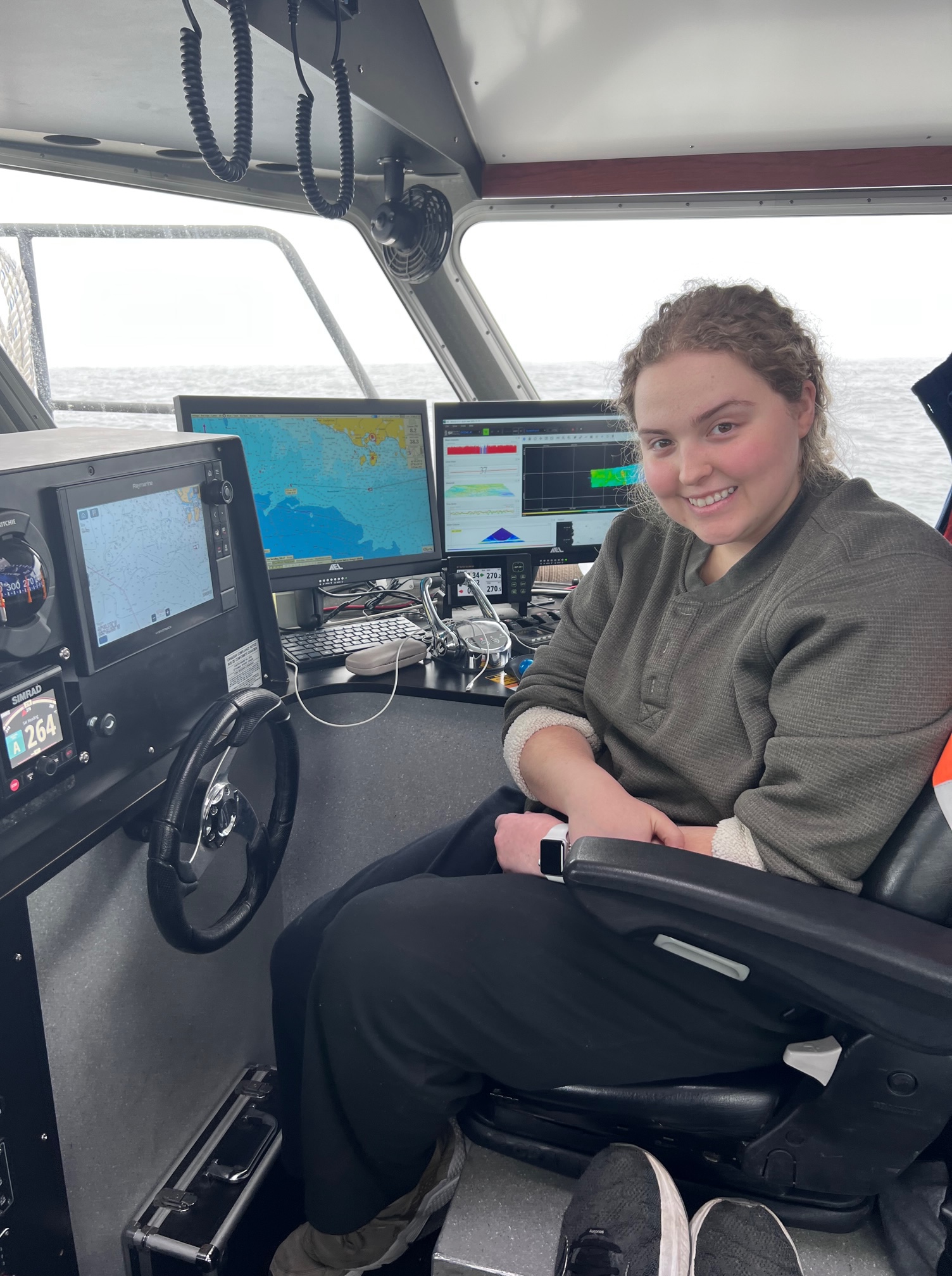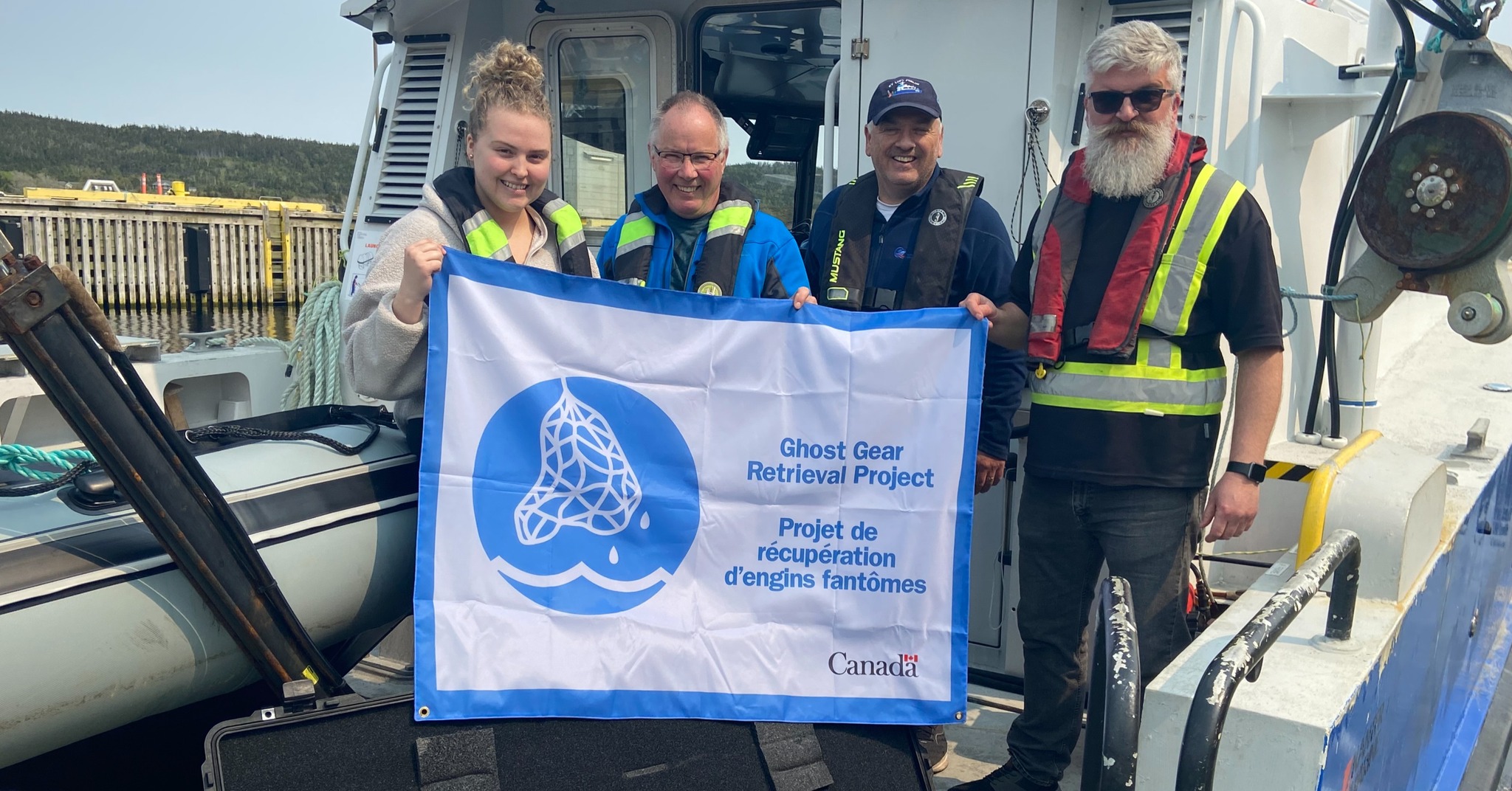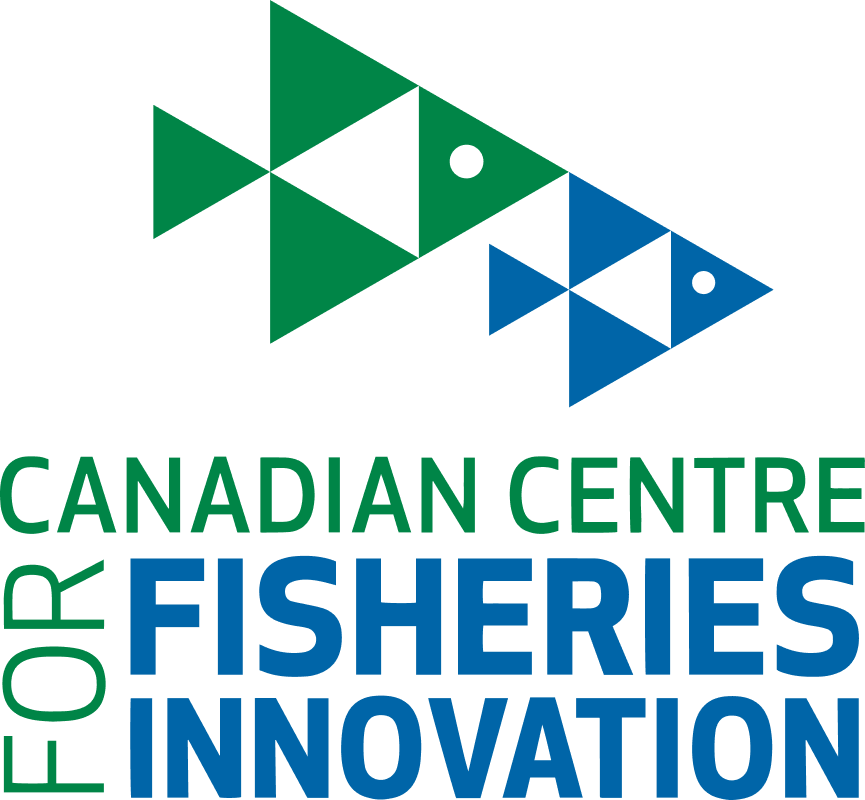FOR IMMEDIATE RELEASE – August 4, 2023
VOCM Article The Canadian Centre for Fisheries Innovation(CCFI) project titled Ghost Gear and Marine Debris Identification and Retrieval Program - Maximizing Innovative Technology and Partnerships in the Wake of Hurricane Fiona is moving into the retrieval phase. CCFI and partners including Atlantic Healthy Oceans Initiative (AHOI) and Qikiqtaaluk Corporation (QC) consulted with local harvesters and residents, and used side scan technology on QC’s research vessel Ludy Pudluk to identify key areas for retrieval of ghost gear that has been wreaking havoc on coastal areas of Newfoundland in the aftermath of Hurricane Fiona. CCFI and its partners will concentrate on retrieval in two regions of the province: Burgeo to Rose Blanche-Harbour le Cou on the southwest coast; and Trout River to Cow Head in the Gros Morne region.The project is supported by Fisheries and Oceans Canada under the Ghost Gear Fund, and will help raise awareness of the impact of lost fishing gear while removing significant amounts of lost gear from the ocean and help restore healthy marine ecosystems in these regions. The importance of a sustainable and productive commercial fishery is paramount to many communities and regions in our province and this work supports the sustainability of the industry. The project will also concentrate on a shoreline program that will identify areas of shoreline collection and removal of discarded fishing gear. Both the in water and shoreline identification and cleanup will focus on recycling all recovered materials to the greatest extent possible with partners and support the implementation of circular resource management. The project involves collaboration with fish harvesters, local harbour authorities, regional Coast Guard, recycling companies, local municipalities, research organizations including Fisheries and Marine Institute of Memorial, Indigenous nations, and other experts, organizations, and stakeholders.
“CCFI has over 30 years of experience collaborating and investing in our fisheries to support the long-term sustainability, protection, and continued viability of our ocean resources,” says, Keith Hutchings, Managing Director at CCFI. “This project, supported
by our partners, will continue that tradition by cleaning the ocean of lost fishing gear that continues to ghost fish and cause unnecessary mortality of various species. With the use of our recycling partners, the ropes, plastics, traps, and netting recovered will be averted from landfills highlighting another valuable contribution of the project.”
Ghost gear has devastating effects on habitats, species, and the fishing industry as debris continues to entangle and kill marine and terrestrial life long after it is lost to the ocean. With funding from this project, CCFI purchased a side scan sonar that uses innovative technology to create images of the ocean floor. These images may distinguish between ocean floor features and ghost gear. AHOI will also employ its remote operated vehicle (ROV) to scope out important coastal fishing grounds potentially impacted by lost gear. To support this work, this project will also use the latest sonar technology aboard Qikiqtaaluk’s research vessel, the RV Ludy Pudluk, to identify and mark lost fishing gear on the seabed and provide detailed mapping for use by vessels to remove gear from water.
“Qikiqtaaluk Corporation (QC) is very pleased to participate in this important project through the provision of its research vessel, the RV Ludy Pudluk, and its hydrographic capabilities, to help identify ghost gear on Newfoundland’s south and west coasts,” stated Peter Keenainak, Vice President of Fisheries for QC. “Through our wholly owned subsidiary, Qikiqtaaluk Fisheries Corporation (QFC), we did our small part to respond to Hurricane Fiona in its immediate aftermath and we hope our vessel can further help by identifying gear that was washed out to sea by the Hurricane and remains on the seafloor, causing further potential environmental damage.”
Once retrieved, usable fishing gear will be returned to fish harvesters and instead of sending the rest to landfill, it will be upcycled and properly disposed of. Ghost gear is a contributor to plastic pollution that poses direct and indirect threats to marine and terrestrial life. The project aims to mitigate the impacts it has on coastal areas and communities by creating innovative ways to reuse the gear.
“We need to turn off the tap on plastic pollution and find solutions to repurpose lost or abandoned fishing gear. We know this is possible through the work AHOI has already done on ghost gear in the wake of Hurricane Fiona this past winter,” says Sydney Sullivan, AHOI’s Plastics and Marine Conservation Coordinator. “We will continue to work with people on the ground, from the communities and those most impacted. They want to be involved, better prepared for natural disasters, and help lessen the impacts of gear once it is no longer usable.”
 .
. 
Marine Institute Ocean Mapping Work Term Student Kathryn Cousens uses side scan sonar and other equipment aboard the research vessel Ludy Pudkuk for the identification of ghost gear.
Media Contact
Keith Hutchings | Managing Director, CCFI 709 631 3609 709 778 0542 Keith.hutchings@mi.mun.ca
Tara Howse | Logistics and Communications Coordinator, AHOI
709 899 2468
Jerry Ward | Director of Fisheries, QC
867 979 8400

